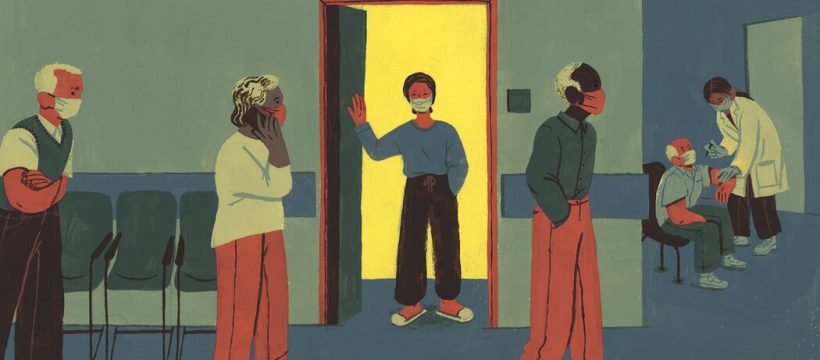“If I accept the vaccine,” one cancer patient says, “it will be with a strong feeling of guilt that at best I will be prolonging my life for a few months or years.”
By Susan Gubar
Do the vaccines against the coronavirus offer cancer patients the same hope that they hold out to healthy people? The women in my cancer support group expressed hesitancy as the vaccines started to be administered to health care workers.
Lucy Cherbas, in chemotherapy for recurrent ovarian cancer and in the over-70 population slated to receive the vaccine next, described the moral impediment that some healthy people also confront in a different variant.
“If I accept the vaccine,” she said, “it will be with a strong feeling of guilt that at best I will be prolonging my life for a few months or years, while others behind me in line still have full lives to live if they don’t succumb to Covid-19.”
Lucy’s altruism reminds us how many people have responded to the pandemic with grace and grit. I talked about her guilt with Dr. Timothy Lahey, a medical ethicist and infectious disease specialist at the University of Vermont Medical Center. He pointed out that at a personal level, “Lucy has no duty to endanger herself for others.” As long as she meets vaccine eligibility criteria, he said, “she should feel no compunction about claiming her vaccine.”
According to Dr. Lahey, “altruism is admirable because it is not compulsory.”
Even at a population level, with vaccine prioritization designed to minimize death and suffering, Lucy has “every right to trust the system and receive the vaccine when her number is called.” Of course, she can give up her place, but, Dr. Lahey said, “such a decision would do little to improve the efficiency of the overall distribution system.”
Lucy was also concerned about the physical issues that play a more prominent role in medical conversations. Because she is on a chemo drug that kills dividing cells, Lucy worried that the vaccine would be ineffective. “The development of an immune response involves a lot of cell division, and that seems unlikely to happen in the presence of anti-mitotic chemo agents,” she said. (Before she retired, Lucy was a molecular geneticist.) Since her oncologist continued to advise her to take the vaccine, Lucy has overcome her misgivings and has made an appointment.
Source: Read Full Article

